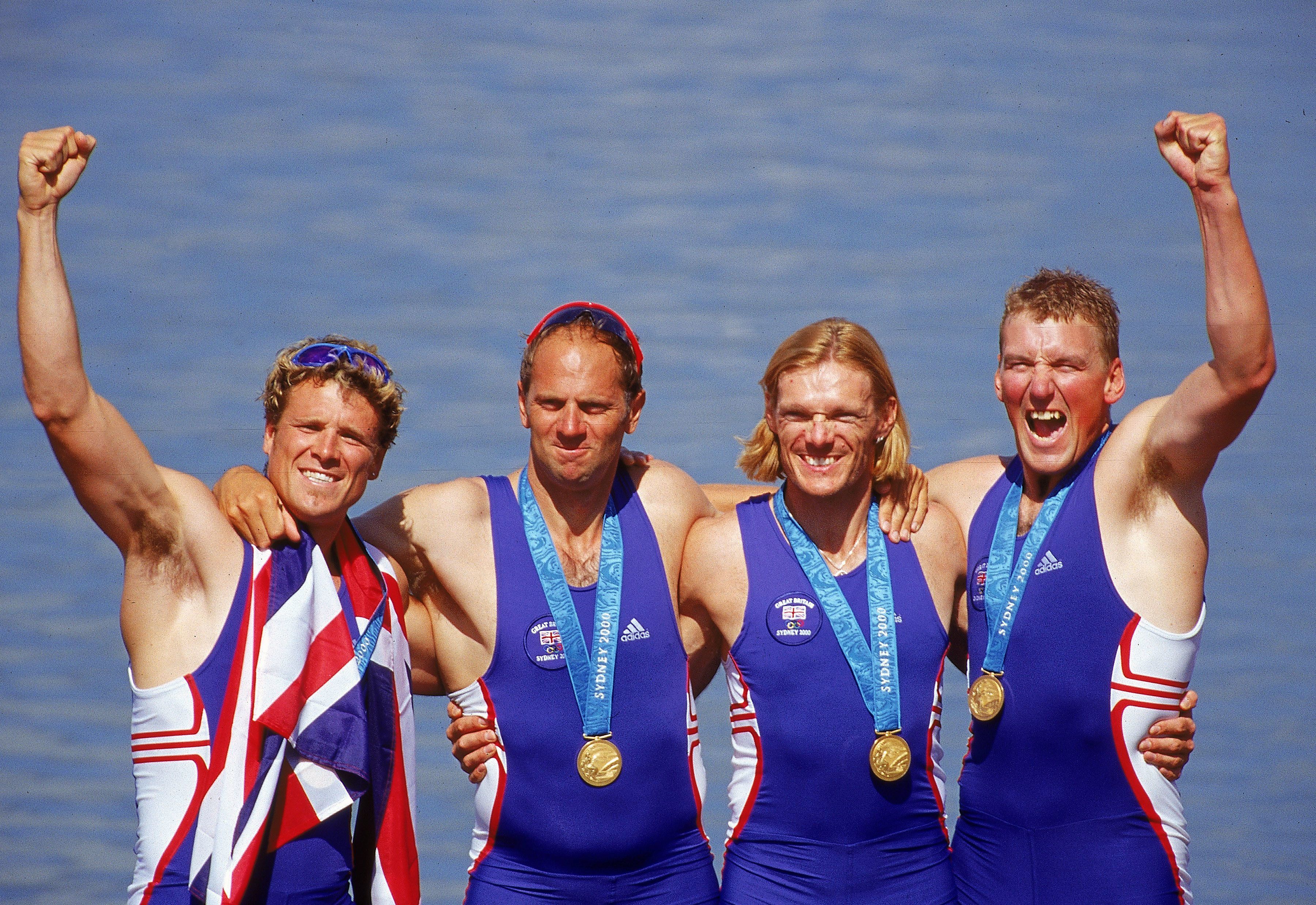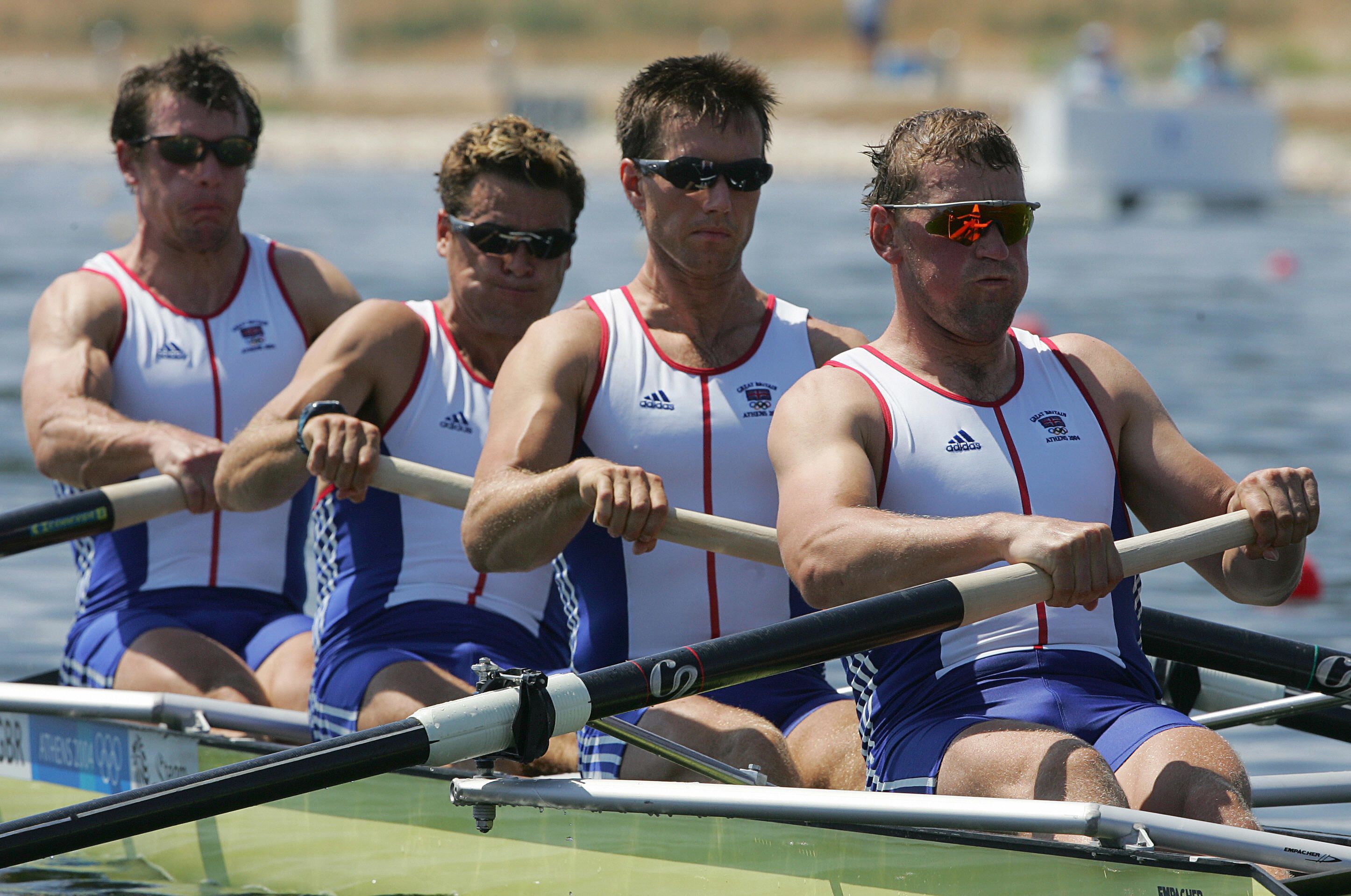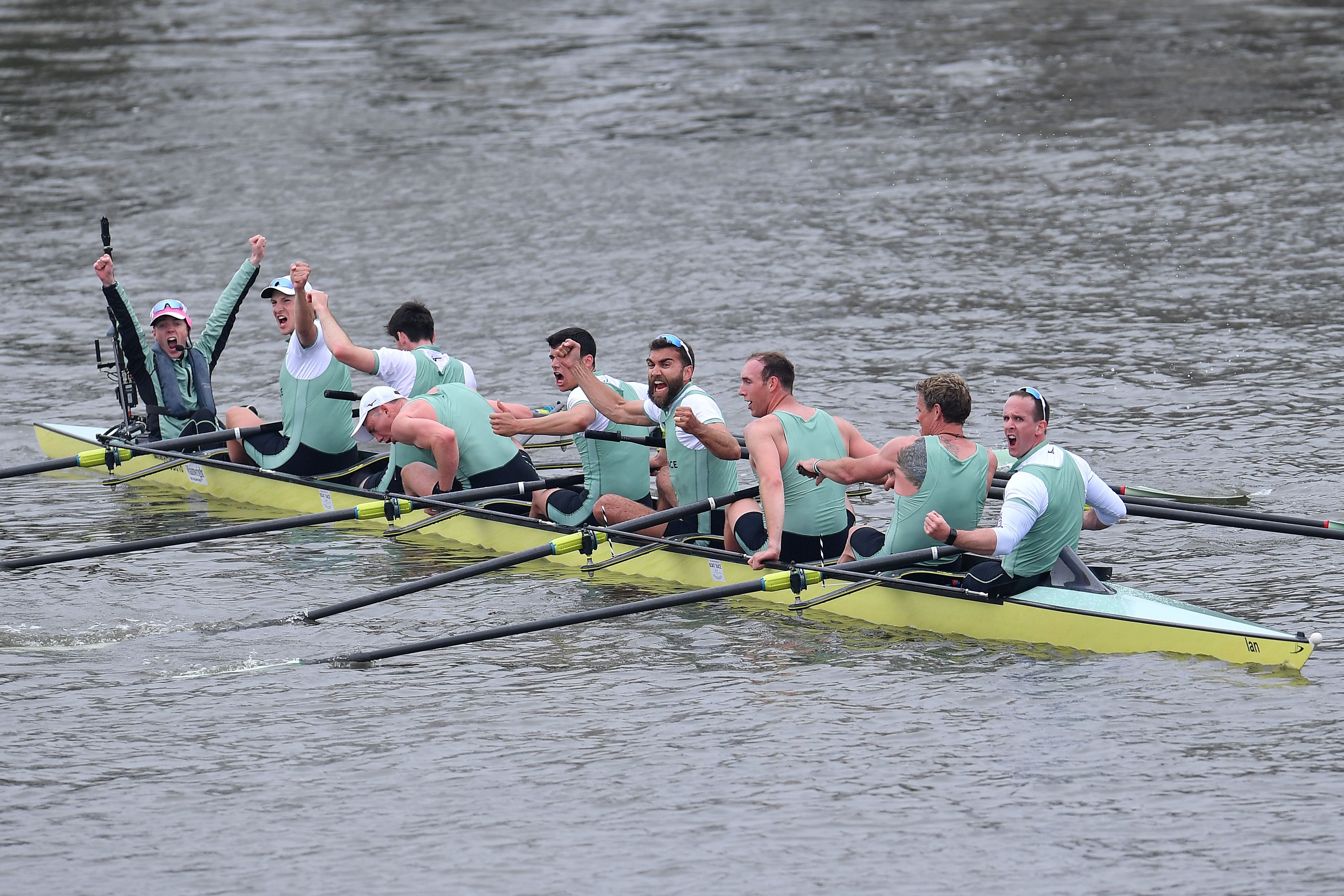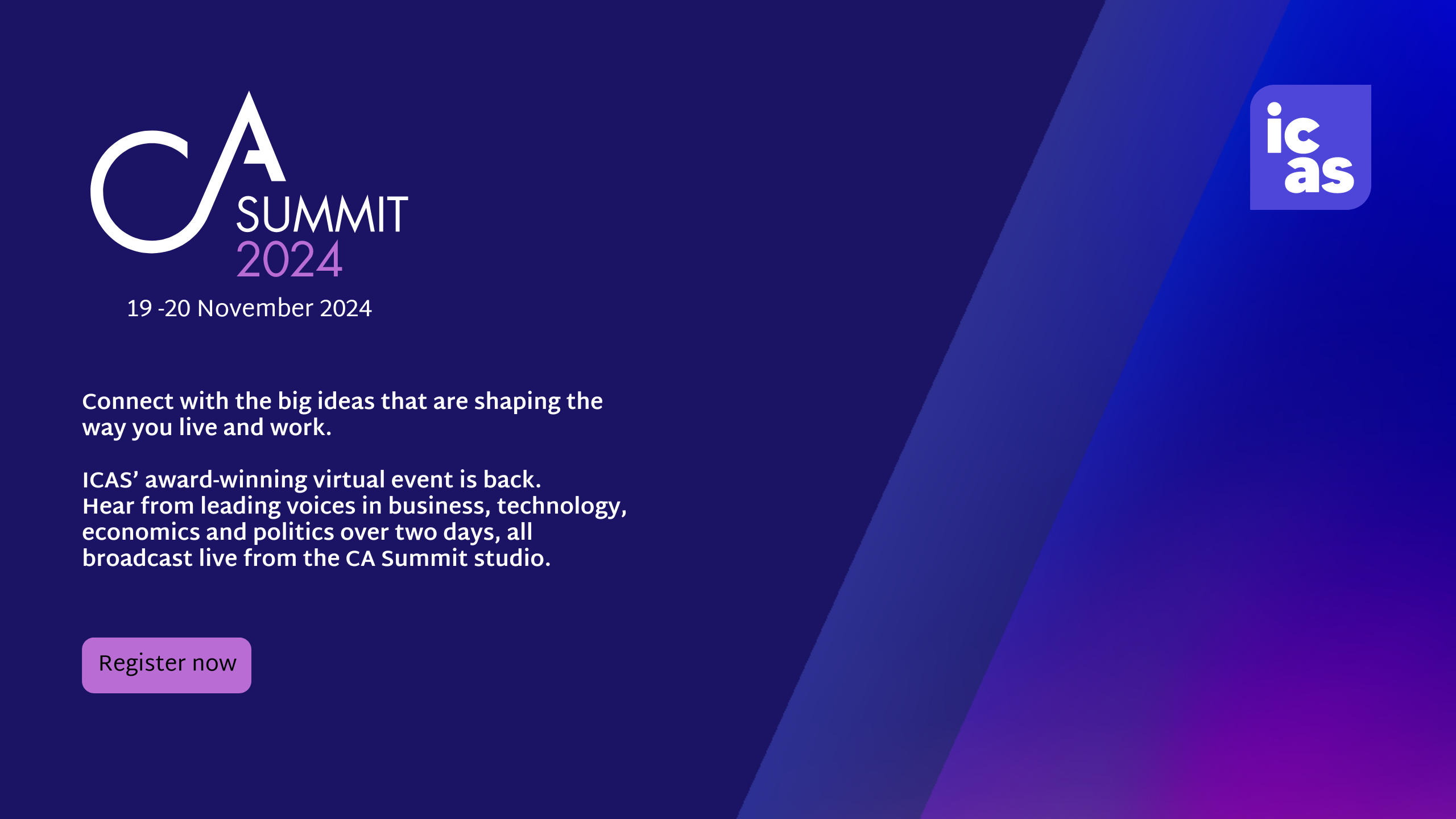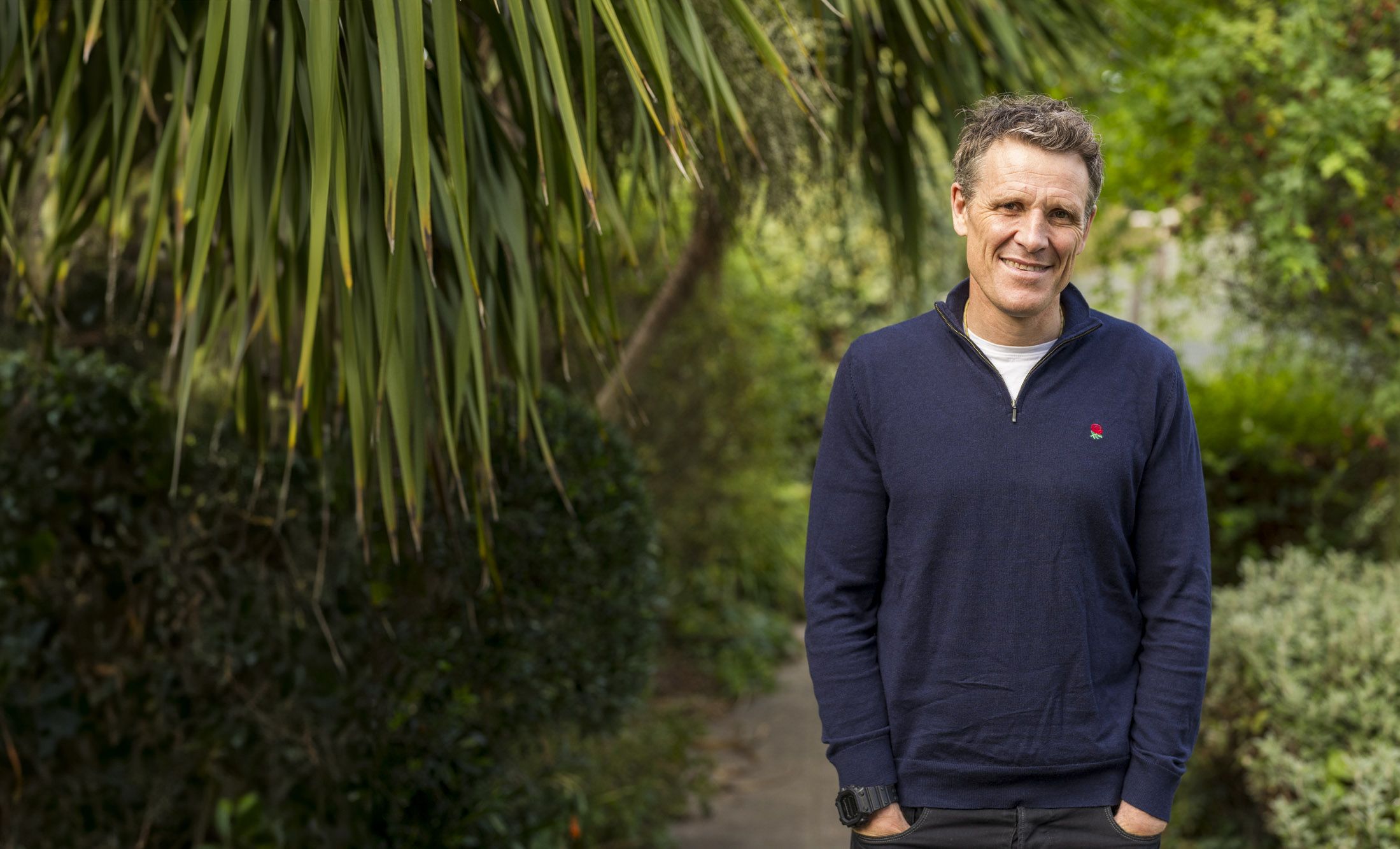
Former rower James Cracknell has won Olympic gold, rowed across the Atlantic, raced to the South Pole and recovered from a devastating brain injury. Now he’s taking fellow elite athletes into businesses to boost performance and maximise potential, he tells Lysanne Currie
James Cracknell is sitting in a west London coffee shop, telling a story about a lesson he learnt rowing across the Atlantic with TV presenter Ben Fogle in 2005. It sounds like hell. Small rowing boat, every element thrown at them, physically exhausting… and the two of them weren’t even close. “It was very difficult at times,” says Cracknell. “Ben and I had similar but not identical goals. Ben just wanted to get there, but it was a race so I wanted to get there as quickly as possible.
“We didn’t know each other that well and we didn’t have the shared history and relationship to really know how to motivate each other. One day we had a really nasty capsize. We lost all our communications and could have pressed the rescue button, but we didn’t. We carried on and it was a pivotal moment in the journey and our relationship.
James Cracknell and Ben Fogle capsize while rowing across the Atlantic
“Suddenly our goals married up and we were empathetic and motivating each other. We had each other’s backs 24/7 and we went much faster. We didn’t know where we were in the race – we’d been eighth when we capsized but we got there in first place [among the pairs]. If someone had asked us before we capsized whether we wanted to do anything together again, we’d have both said no. But when we finished the race we said, ‘Let’s do something else.’ So we went to the South Pole. An event forced it, but when our goals were exactly the same, it worked perfectly.”
Focusing on a shared goal is one of the lessons taught by Muto, Cracknell’s new elite performance business, co-founded last year with entrepreneur James Tansey. It’s a programme based on the belief that “the elite athlete mindset isn’t just for elite athletes” and helps top business teams to learn the secrets of how to work together better and win together more. But this isn’t a coach-led programme – instead the knowledge comes from “elite athletes and the experts who support them, who every day push not only their own boundaries but the boundaries of their sports”.
More than 100 athletes, and their teams, act as coaches and mentors to help high-performers build the mental and physical resilience needed to become business leaders. The athletes, overseen by Cracknell, include gold medallists from various sports, ranging from long-distance runners to skiers. The programmes, which are specifically designed for the needs of the particular companies, take the form of inspirational talks, workshops and training sessions – group and individual – with both the athletes and their support psychologists and coaches.
Left to right: Cracknell, Steve Redgrave, Tim Foster and Matthew Pinsent celebrate Olympic gold in Sydney
Left to right: Cracknell, Steve Redgrave, Tim Foster and Matthew Pinsent celebrate Olympic gold in Sydney
The programme offers full immersion into the Olympian mindset – an idea born from Cracknell’s observations and personal experience – with days spent at hallowed sports venues such as Eton Dorney and Silverstone.
The programme isn’t one way, however. Muto was developed not only to help business talent reach their full potential but also to support Olympic athletes and help them develop, share and earn from the skills and characteristics that led them to their podiums. Muto ensures athletes can focus on their training without financial worries and transition smoothly from their sporting careers to other professional avenues, providing them with valuable skills and opportunities.
Golden days
Cracknell began his stellar career in an age before such financial support and has personal experience of the hardships faced by elite athletes: training full time during the day, then working evenings in a pub for £3.50 an hour.
Having started rowing at school, Cracknell won the Junior World Championships and was selected for four Olympics – but only raced at two. He missed the 1992 Barcelona Games when, having recovered from a broken shoulder sustained playing rugby, he rejected a place as a reserve. In Atlanta 1996 he qualified for the double sculls but contracted tonsillitis: “That was partly because I was training all day and working all night so my immune system went down.”
He wouldn't be denied forever, though, winning gold as part of the coxless fours team, first in Sydney 2000 and again in Athens 2004. And with the advent of lottery funding, things began looking up financially: athletes were funded and sponsorship started flowing. But, he says, nowadays the sponsor pot is stretched: “We have many more Olympians and so the value of a medal has gone down”.
Cracknell (second left) at Athens 2004, winning his second Olympic gold, alongside (left to right) Steve Williams, Ed Coode and Pinsent
Cracknell (second left) at Athens 2004, winning his second Olympic gold, alongside (left to right) Steve Williams, Ed Coode and Pinsent
While the medals may seem less prestigious than before, Cracknell observed that elite athletes have a valuable skillset, much of which could be transferred to the workplace. “They can work in a team, perform under pressure and are self-motivated, to name but a few,” he says. “All things that could be useful in a work environment. But they haven’t had any experience in the corporate world to realise that.”
Cracknell has been working with sport governing bodies to promote the benefits of athletes working with businesses. “It gives them a mental break from their training,” he says. “They network, meet people and use their brains in different ways. They’re not worrying about how the last session went or over-analysing.”
Team detox
Cracknell talks to Muto clients at length about the dangers of toxicity within a team, and how a group of superb, high-performing individuals can be undone by internal discontent.
“If you’ve got a bad team culture, it can really bring a whole lot down,” he says. “That’s [something that] transfers into business in quite an interesting way. Teams have to work together, and communication within the team is so important in a sport like rowing, where you are all doing the same thing at the same time and need to have a brutally honest relationship.
“You have to know what your objectives are and not be afraid to challenge teammates. That only really works if you have that shared goal. Personal responsibility and accountability within teams are also key.” (Cracknell reiterated this point, and made headlines doing so, not long after our interview when, standing for the Conservative party in Colchester in the general election, he lashed out at senior Tories embroiled in the betting scandal. “If one of my teammates got caught cheating, they’d be dead to me,” he said in a video. The video went viral, although he was unable to defend the seat.)
Education
Studied human geography at University of Reading; took master’s in science at Brunel University and in human evolution at University of Cambridge
1990
Wins gold medal for rowing at the Junior World Championship
1996
Withdraws from Atlanta Olympics with tonsillitis
1997
Joins men’s coxless fours, alongside Steve Redgrave, Matthew Pinsent and Tim Foster, winning three successive World Rowing Championships in 1997–99
2000
Wins gold at the Sydney Olympics, and again at Athens 2004
2001
Pairs with Matthew Pinsent, winning three World Championship golds in two years
2005
Awarded the OBE for services to sport
2008
Sets up Threshold Sports
2012
Writes Touching Distance, a book exploring his recovery from 2010 cycling accident
2019
While studying at Cambridge, joins the team for the annual Boat Race, becoming its oldest competitor – and winner
2020
Sets a world record in the British Indoor Rowing Marathon Record for Heavyweight 40–49 Men
2023
Co-founds Muto
2024
Stands for election as the Conservative parliamentary candidate for Colchester
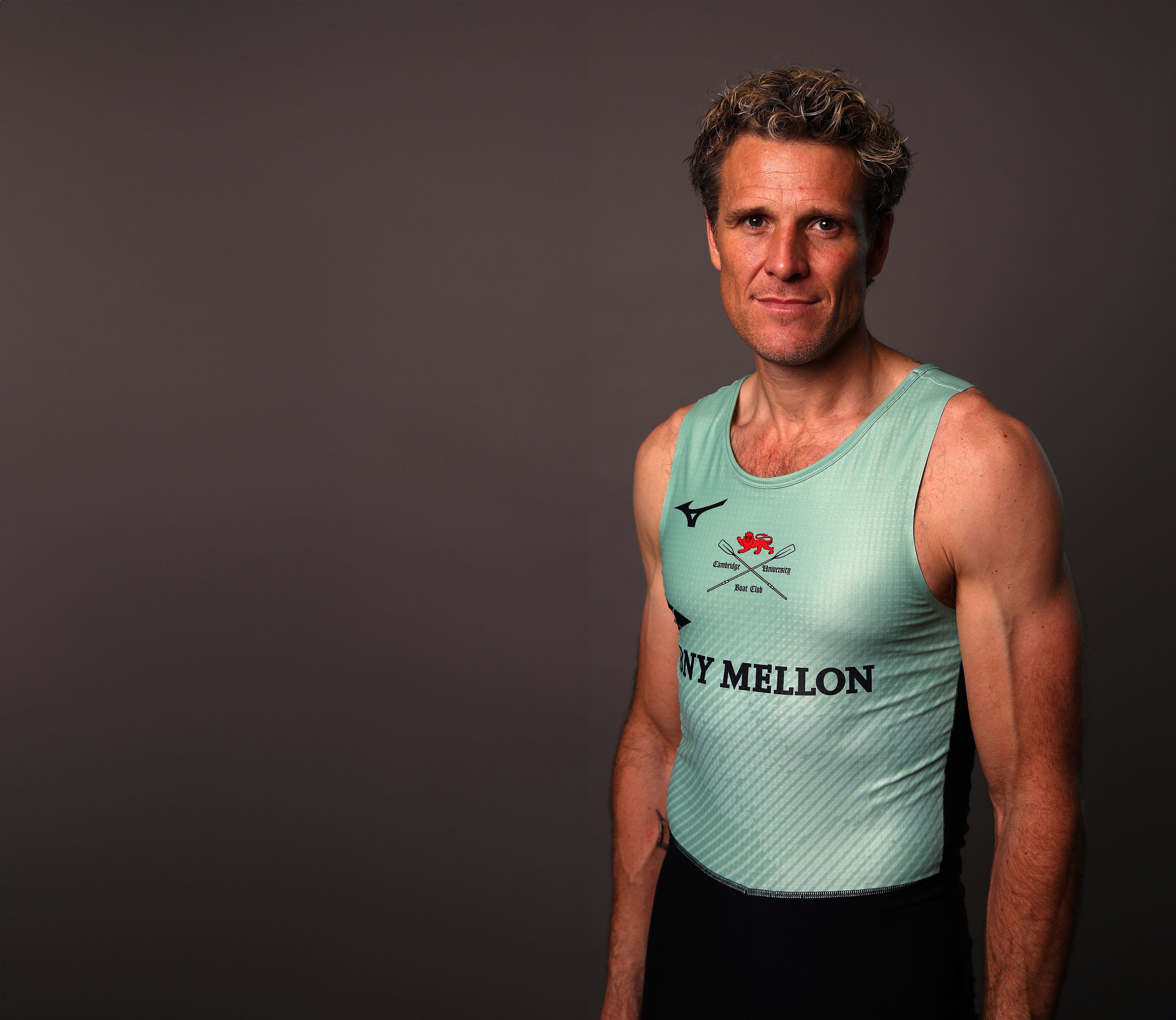
Cracknell illustrates his commitment to responsibility with another endurance anecdote, this time from his race to the South Pole. He talks about the crew, how tasks were carefully divided between them, and how one of the engineers held up a piece of metal for which he was responsible and vowed, “This, my piece of metal, will not be the reason you don’t get there.”
Cracknell alludes to having learnt all this the hard way. “I think I’d be a far better teammate now after my accident,” he says.
Road to recovery
He is of course referring to the 2010 accident when he was hit from behind by a petrol tanker while cycling during an attempt to bike, row, run and swim from Los Angeles to New York in 18 days. His helmet saved his life but he was left with severe brain damage that altered his personality. He regards his recovery as his greatest achievement and puts it down to an attitude he developed as an elite sportsperson.
“What helped my recovery was the same mindset that made me successful in sports: that attitude of ‘don’t tell me what I can’t do again’. I set my own limits,” he says.
“Teams have to work together, and communication within the team is so important in a sport like rowing, where you are all doing the same thing at the same time and need to have a brutally honest relationship”
“The hardest thing was people’s perceptions – all my behaviour decisions were being judged through the prism of a brain injury rather than my personality, my single-mindedness.”
Cracknell decided to do two things to curtail the judgement: a master’s degree at Cambridge and competing in the Boat Race, 13 years after announcing his retirement from rowing in 2006. “I thought if I can do the Boat Race and achieve academically, physically and mentally, I’ll be where I was and that would stop people saying, ‘Are you ok?’,” he says.
Cracknell submitted his thesis on the ninth anniversary of his accident. On the same day he wrote a letter to the neurologist, saying, “If I had listened to you I wouldn’t be here. Don’t limit what people can do.”
His mindset was key, as was therapy – although the journey there took a while. “I remember going to my first session,” he says. “There were two chairs and a little table with a box of tissues and the therapist said, ‘They’re for you’. In my head I was going, ‘You’re not breaking me’. I saw asking for help as a real sign of weakness.
Cracknell, second right, winning the 2019 Boat Race as part of the Cambridge team
Cracknell, second right, winning the 2019 Boat Race as part of the Cambridge team
“Then, when I was at Cambridge, I was in a really dark place. Bev [Turner, his first wife and a TV presenter] and I were splitting up, I was really missing the kids, and I had broken a rib. I phoned up a friend, a former sportsman, who said, ‘I have been waiting months for you to call.’”
Cracknell embraced therapy and mentoring and reached out to friends: “A mate who is in the SAS said to me after the accident, ‘You will have loads of people tell you you’re really lucky, and in your head you are going to say that you’re not lucky, because you didn’t want this. You don’t want everyone to be so relentlessly positive.’
“This taught me a lesson – sometimes we just absolutely want to let off steam. That’s important in a team, to be able to let off steam without other people being worried about it. That place of safety is very important in a stressful environment, whether sports or business.”
One thing Cracknell believes isn’t done enough – in sport and business – is celebrating the little wins as well as the big. It is important for trust, camaraderie and focus, he believes.
“I’d been lying down for three months in my recovery when a friend came over and told me to start physically moving and recording the progress in a diary. That way I could look back and see how far I had come.
“Recording progress is really useful in a business situation too, in that it gives perspective and focus. In the Olympics we didn’t do it enough as a team – we celebrated the end goal but not the successes on the way to that. You can win every race and if you lose that big one you fail. That is a long time without rewarding yourself. It’s so important for everyone to celebrate the milestones as well as the end of the journey.”
Visit our wellbeing hub for more resources



